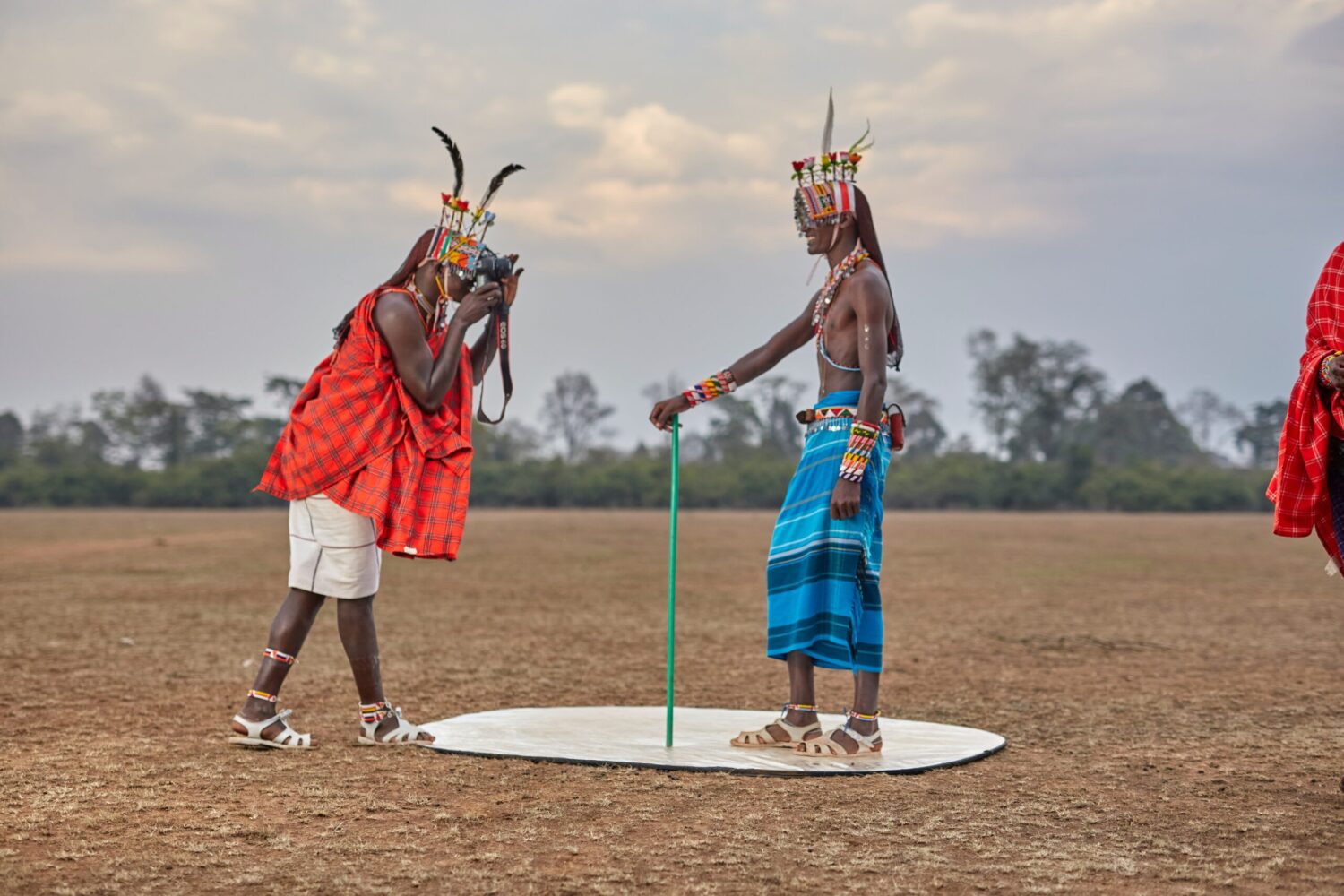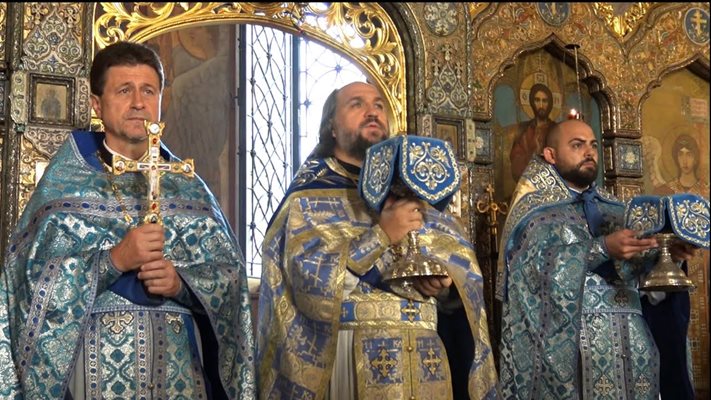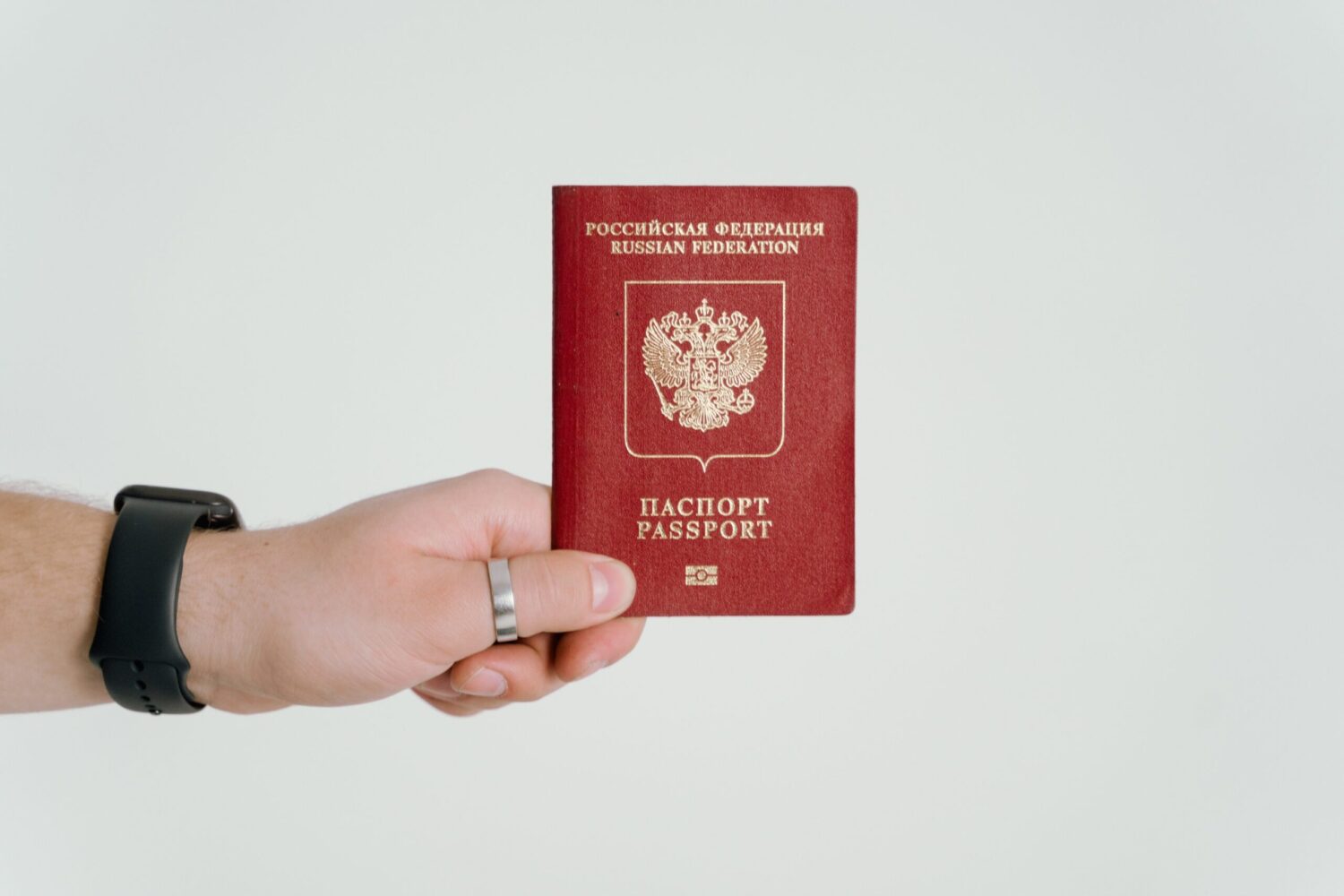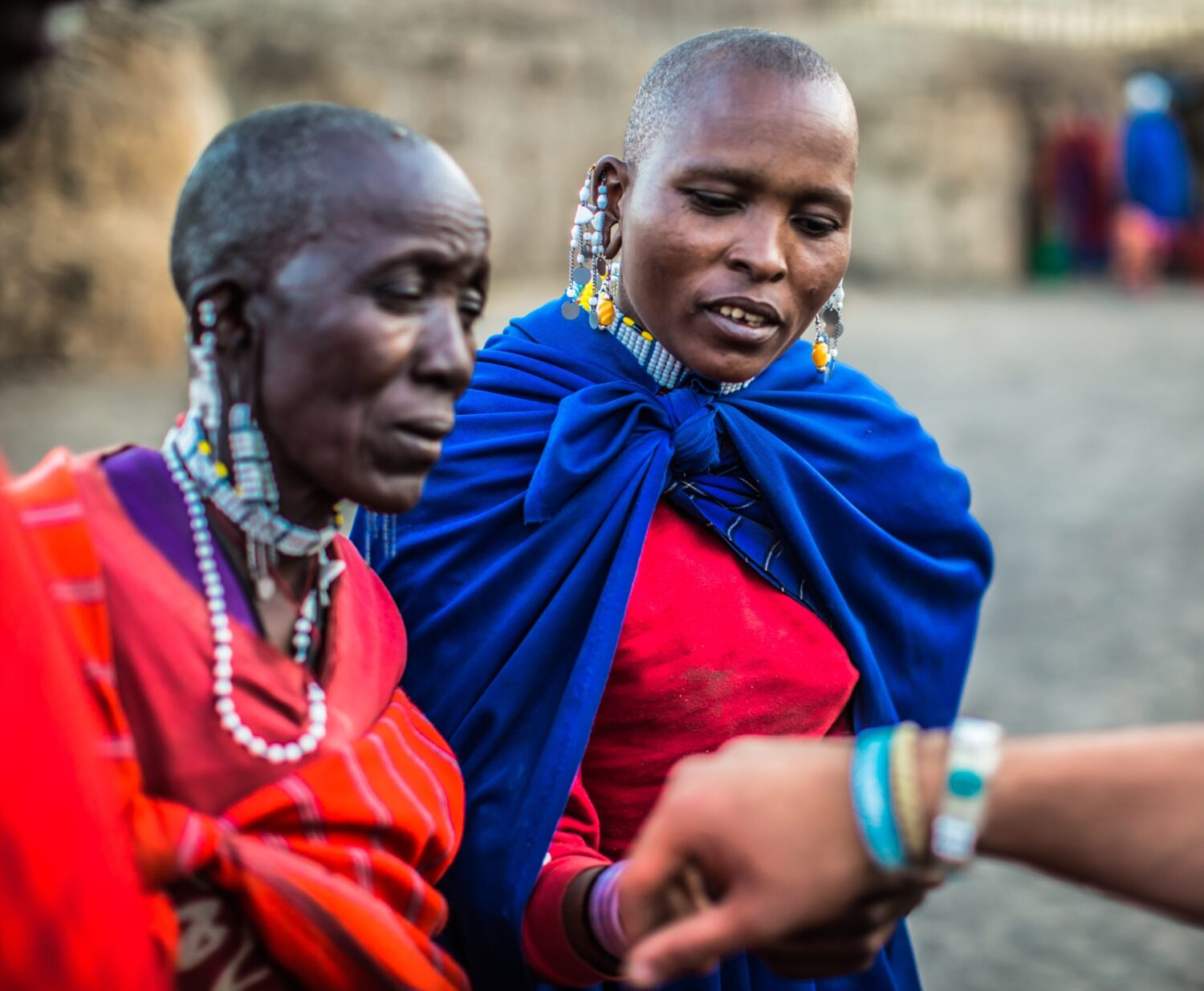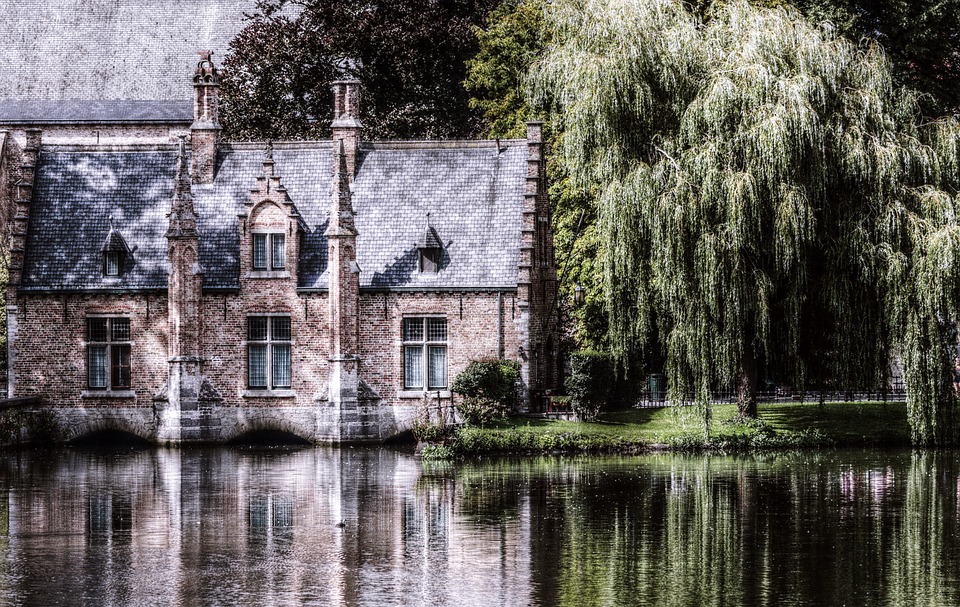By Teodor Detchev
The previous part of this analysis, entitled “Sahel – Conflicts, Coups and Migration Bombs”, addressed the issue of the rise of terrorist activity in West Africa and the inability to end the guerrilla war waged by Islamic radicals against government troops in Mali, Burkina Faso , Niger, Chad and Nigeria. The issue of the ongoing civil war in the Central African Republic was also discussed.
One of the important conclusions is that the intensification of the conflict is fraught with the high risk of a “migration bomb” that would lead to unprecedented migration pressure along the entire southern border of the European Union. An important circumstance is also the possibilities of Russian foreign policy to manipulate the intensity of conflicts in countries such as Mali, Burkina Faso, Chad and the Central African Republic. [39] With its hand on the “counter” of a potential migration explosion, Moscow could easily be tempted to use induced migration pressure against EU states that are generally already designated as hostile.
In this risky situation, a special role is played by the Fulani people – an ethnic group of semi-nomads, migratory livestock breeders who inhabit the strip from the Gulf of Guinea to the Red Sea and number 30 to 35 million people according to various data. Being a people who have historically played a very important role in the penetration of Islam into Africa, especially West Africa, the Fulani are a huge temptation for Islamic radicals, despite the fact that they profess the Sufi school of Islam, which is undoubtedly the most tolerant, as and the most mystical.
Unfortunately, as will be seen from the analysis below, the issue is not just about religious opposition. The conflict is not only ethno-religious. It is socio-ethno-religious, and in recent years, the effects of the wealth accumulated through corruption, converted into livestock ownership – the so-called neo-pastoralism – have begun to exert an additional strong influence. This phenomenon is particularly characteristic of Nigeria and will be the subject of the third part of this analysis.
The Fulani and Jihadism in Central Mali: Between Change, Social Rebellion and Radicalization
While Operation Serval succeeded in 2013 in pushing back the jihadists who had taken over northern Mali, and Operation Barhan prevented them from returning to the front line, forcing them into hiding, the attacks not only did not stop, but spread to the central part of Mali (in the area of the bend of the Niger River, also known as Massina). In general, terrorist attacks increased after 2015.
Jihadists are certainly not in control of the region as they were in northern Mali in 2012 and are forced into hiding. They do not have a “monopoly on violence” as militias have been created to fight them, sometimes with the support of the authorities. However, targeted attacks and killings are increasing, and insecurity has reached such a level that the region is no longer under real government control. Many civil servants have left their posts, a significant number of schools have been closed, and the recent presidential elections could not be held in a number of municipalities.
To some extent, this situation is the result of “contagion” from the North. Pushed out of the northern cities, which they held under control for several months after failing to create an independent state, forced to “behave more discreetly”, the jihadist armed groups, looking for new strategies and new ways of operating, were able to take advantage of the factors of instability in the Central region to gain new influence.
Some of these factors are common to both the central and northern regions. However, it would be wrong to believe that the serious incidents that have regularly occurred in the central part of Mali for years after 2015 are just a continuation of the northern conflict.
In fact, other weaknesses are more specific to the central regions. The targets of local communities exploited by jihadists are very different. While the Tuareg in the north claimed the independence of Azaouad (a region which is actually mythical – it never corresponded to any political entity of the past, but which separates for the Tuareg all the regions in the north of Mali), the communities represented in the central regions , do not make comparable political claims, insofar as they make any claims at all.
The significance of the difference between the role of the Fulani in northern events and in the central regions, which is emphasized by all observers, is telling. Indeed, the founder of the Masina Liberation Front, the most important of the armed groups involved, Hamadoun Kufa, who was killed on November 28, 2018, was ethnically Fulani, as were the vast majority of his fighters. [38]
Few in the north, the Fulani are numerous in the central regions and concerned like most other communities by the increased competition between migratory herders and settled farmers that is occurring in the region, they suffer more from it due to historical and cultural circumstances.
The defining trends in the region and the Sahel as a whole, which make it difficult for nomads and settled people to live together, are essentially two:
• climate change, already underway in the Sahel region (rainfall has decreased by 20% in the last 40 years), forces nomads to seek new grazing areas;
• population growth, which forces farmers to seek new land, has a particular impact in this already densely populated region. [38]
If the Fulani, as migratory herders, are particularly troubled by the inter-communal competition these developments bring about, it is on the one hand because this competition pits them against almost all other communities (the region is home to the Fulani, Tamashek, Songhai, Bozo, Bambara and the Dogon), and on the other hand, because the Fulani are particularly affected by other developments related more to state policies:
• even if the Malian authorities, unlike what has happened in other countries, have never theorized on the issue of the interest or necessity of settlement, the fact is that development projects are more aimed at settled people. Most often this is due to donor pressure, usually in favor of abandoning nomadism, considered less compatible with modern state building and limiting access to education;
• the introduction in 1999 of decentralization and municipal elections, which, although they gave the Fulani people the opportunity to bring the community’s demands to the political stage, mainly contributed to the emergence of new elites and thereby to the questioning of traditional structures, based on customs, history and religion. The people of the Fulani people felt these transformations particularly strongly, inasmuch as the social relations in their community are ancient. These changes were also initiated by the state, which they had always considered “imported” from the outside, a product of a Western culture far removed from their own. [38]
This effect is, of course, limited within the vicissitudes of decentralization policy. However, it is a fact in a number of municipalities. And undoubtedly the “feeling” of such transformations is stronger than their real impact, especially among the Fulani who tend to consider themselves “victims” of this policy.
Finally, historical reminiscences should not be neglected, although they should not be overestimated either. In the imagination of the Fulani, the Masina Empire (of which Mopti is the capital) represents the golden age of the central regions of Mali. The legacy of this empire includes, in addition to social structures specific to the community and a certain attitude to religion: the Fulani live and perceive themselves as supporters of pure Islam, in the air of the Sufi brotherhood of the Quadriyya, sensitive to the strict application of the injunctions of the Koran.
The jihad preached by leading figures in the Masina empire was different from that preached by the terrorists currently operating in Mali (who had directed their message to other Muslims whose practices were not considered to conform to the founding text). Kufa’s attitude towards the leading figures in the Masina empire was ambiguous. He often referred to them, but again he desecrated the mausoleum of Sekou Amadou. However, the Islam practiced by the Fulani appears to be potentially compatible with some aspects of Salafism that jihadist groups regularly claim as their own. [2]
A new trend seems to be emerging in the central regions of Mali in 2019: gradually the initial motivations for joining purely local jihadist groups appear to be more ideological, a trend that is reflected in the questioning of the Malian state and modernity in general. Jihadi propaganda, which proclaims the rejection of state control (imposed by the West, which is complicit in it) and emancipation from the social hierarchies produced by colonization and the modern state, finds a more “natural” echo among the Fulani than among other ethnic groups . [38]
The regionalization of the Fulani question in the Sahel region
Expansion of the conflict towards Burkina Faso
The Fulani are the majority in the Sahelian part of Burkina Faso, which borders Mali (in particular the provinces of Soum (Jibo), Seeno (Dori) and Ouadlan (Gorom-Goom), which border the regions of Mopti, Timbuktu and Gao) of Mali). and also with Niger – with the Tera and Tillaberi regions. A strong Fulani community also lives in Ouagadougou, where it occupies much of the Dapoya and Hamdalaye neighbourhoods.
At the end of 2016, a new armed group appeared in Burkina Faso that claimed to belong to the Islamic State – Ansarul Al Islamia or Ansarul Islam, whose main leader was Malam Ibrahim Dicko, a Fulani preacher who, like Hamadoun Koufa in Central Mali, made himself known through numerous attacks against Burkina Faso’s defense and security forces and against schools in the provinces of Sum, Seeno and Deleted. [38] During the restoration of government forces’ control over northern Mali in 2013, the Malian armed forces captured Ibrahim Mallam Diko. But he was released after the insistence of the leaders of the Fulani people in Bamako, including the former Speaker of the National Assembly – Aly Nouhoum Diallo.
The leaders of Ansarul Al Islamia are former fighters of MOJWA (Movement for Oneness and Jihad in West Africa – Movement for unity and jihad in West Africa, by “unity” should be understood as “monotheism” – Islamic radicals are extreme monotheists) from central Mali. Malam Ibrahim Dicko is now presumed dead and his brother Jafar Dicko succeeded him as the head of Ansarul Islam. [38]
However, the action of this group remains geographically limited for now.
But, as in central Mali, the entire Fulani community is seen as complicit with the jihadists, who are targeting settled communities. In response to terrorist attacks, settled communities formed their own militias to defend themselves.
Thus, in early January 2019, in response to an armed attack by unidentified persons, residents of Yirgou attacked Fulani-populated areas for two days (January 1 and 2), killing 48 people. A police force was dispatched to restore calm. At the same time, a few miles away, in Bankass Cercle (an administrative subdivision of the Mopti region of Mali), 41 Fulani were killed by Dogons. [14], [42]
The situation in Niger
Unlike Burkina Faso, Niger has no terrorist groups operating from its territory, despite Boko Haram’s attempts to establish itself in the border regions, especially on the Diffa side, winning over young Nigeriens who feel that the economic situation in the country deprives them of a future. So far, Niger has been able to counter these attempts.
These relative successes are explained in particular by the importance that the Nigerien authorities attach to security issues. They allocate a very large part of the national budget to them. The Nigerien authorities have allocated significant funds to strengthen the army and police. This assessment is made taking into account the available opportunities in Niger. Niger is one of the poorest countries in the world (in last place according to the human development index in the ranking of the United Nations Development Program – UNDP) and it is very difficult to combine efforts in favor of security with the policy of initiating a development process.
The Nigerian authorities are very active in regional cooperation (in particular with Nigeria and Cameroon against Boko Haram) and very willingly accept on their territory foreign forces provided by Western countries (France, USA, Germany, Italy).
Moreover, the authorities in Niger, just as they were able to take measures that largely quelled the Tuareg problem, more successfully than their Malian counterparts, also showed greater attention to the Fulani issue than they do in Mali.
However, Niger could not completely avoid the contagion of terror coming from neighboring countries. The country is regularly the target of terrorist attacks, carried out both in the southeast, in the border regions with Nigeria, and in the west, in the regions near Mali. These are attacks from the outside – operations led by Boko Haram in the southeast and operations coming from the Ménaka region in the west, which is a “privileged breeding ground” for the Tuareg insurgency in Mali.
Attackers from Mali are often Fulani. They do not have the same power as Boko Haram, but it is even more difficult to prevent their attacks because the porosity of the border is high. Many of the Fulani involved in the attacks are Nigerien or of Nigerien descent – many Fulani migratory herders were forced to leave Niger and settle in neighboring Mali when irrigated land development in the Tillaberi region reduced their grazing land in the 1990s. [38]
Since then, they have been involved in the conflicts between the Malian Fulani and the Tuareg (Imahad and Dausaki). Since the last Tuareg uprising in Mali, the balance of power between the two groups has shifted. By then, the Tuareg, who had already rebelled several times since 1963, already had many weapons at their disposal.
The Fulani of Niger were “militarized” when the Ganda Izo militia was formed in 2009. (The creation of this armed militia was the result of the ongoing split in a historically older militia – “Ganda Koi”, with which “Ganda Izo” is basically in a tactical alliance. Since “Ganda Izo” aimed to fighting the Tuareg, the Fulani people joined it (both Malian Fulani and Niger Fulani), after which many of them were integrated into MOJWA (Movement for Oneness and Jihad in West Africa – Movement for Unity (monotheism) and jihad in West Africa) and then in ISGS (Islamic State in the Great Sahara). [38]
The balance of power between the Tuareg and Dausaki, on the one hand, and the Fulani, on the other, is changing accordingly, and by 2019 it is already much more balanced. As a result, new clashes occur, often leading to the death of dozens of people on both sides. In these skirmishes, international counter-terrorist forces (particularly during Operation Barhan) in some cases created ad hoc alliances with the Tuareg and Dausak (particularly with the MSA), who, following the conclusion of the peace agreement with the Malian government, engaged in the fight against terrorism.
The Fulani of Guinea
Guinea with its capital Conakry is the only country where the Fulani are the largest ethnic group, but not the majority – they are about 38% of the population. Although they originate from Central Guinea, the central part of the country that includes cities such as Mamu, Pita, Labe and Gaual, they are present in every other region where they have migrated in search of better living conditions.
The region is not affected by jihadism and the Fulani are not and have not been particularly involved in violent clashes, except for traditional conflicts between migratory herders and settled people.
In Guinea, the Fulani control most of the country’s economic power and largely the intellectual and religious forces. They are the most educated. They become literate very early, first in Arabic and then in French through the French schools. Imams, teachers of the Holy Qur’an, senior officials from the interior of the country and from the diaspora are in their majority Fulani. [38]
However, we can wonder about the future as the Fulani have always been victims of [political] discrimination since independence to be kept away from political power. The other ethnic groups feel encroached upon by these traditional nomads who come to tear up their best lands to build the most prosperous businesses and the glitziest residential neighborhoods. According to the other ethnic groups in Guinea, if the Fulani come to power, they will have all the power and given the mentality attributed to them, they will be able to keep it and keep it forever. This perception was reinforced by the fiercely hostile speech of Guinea’s first president, Sekou Toure, against the Fulani community.
From the earliest days of the independence struggle in 1958, Sekou Toure who is from the Malinke people and his supporters have been facing the Fulani of Bari Diawandu. After coming to power, Sekou Toure assigned all important positions to people from the Malinke people. The exposure of alleged Fulani conspiracies in 1960 and especially in 1976 provided him with a pretext for the elimination of important Fulani figures (notably in 1976, Telly Diallo, who was the first Secretary-General of the Organization of African Unity, a highly respected and prominent figure, is imprisoned and deprived of food until he dies in his dungeon). This alleged plot was an opportunity for Sekou Toure to deliver three speeches denouncing the Fulani with extreme malice, calling them “traitors” who “only think of money…”. [38]
In the first democratic elections in 2010, Fulani candidate Cellou Dalein Diallo came out on top in the first round, but all ethnic groups joined forces in the second round to prevent him from becoming president, handing power to Alpha Conde , whose origin is from the Malinke people.
This situation is increasingly unfavorable to the Fulani people and generates frustration and disappointment which the recent democratization (2010 elections) has allowed to be publicly expressed.
The next presidential election in 2020, in which Alpha Condé will not be able to run for re-election (the constitution prohibits a president from serving more than two terms), will be an important deadline for the development of relations between the Fulani and other ethnic communities in Guinea.
Some interim conclusions:
It would be extremely tendentious to speak of any pronounced propensity among the Fulani for “jihadism”, much less of such a propensity that was induced by the history of the former theocratic empires of this ethnic group.
When analyzing the risk of the Fulani siding with radical Islamists, the complexity of Fulani society is often overlooked. So far, we have not gone into the depth of the social structure of the Fulani, but in Mali, for example, it is very complex and hierarchical. It is logical to expect that the interests of the constituent parts of Fulani society may differ and become the cause of conflicting behavior or even division within the community.
As for central Mali, the tendency to challenge the established order, which is said to drive many Fulani to join the jihadist ranks, is sometimes the result of young people in the community acting against the will of the more the adults. Likewise, young Fulani people have sometimes tried to take advantage of municipal elections, which, as explained, have often been seen as an opportunity to produce leaders who are not traditional notables) – these young people sometimes consider more the adults as participants in these traditional “notabilities”. This creates opportunities for internal conflicts – including armed conflicts – between people of the Fulani people. [38]
There is no doubt that the Fulani are predisposed to ally themselves with opponents of the established order – something fundamentally inherent to nomads. Furthermore, in consequence of their geographical dispersion, they are doomed to always remain in the minority and subsequently to be unable to influence decisively the fate of the countries in which they live, even when exceptionally they seem to have such an opportunity and believe that it is legitimate, as is the case in Guinea.
The subjective perceptions arising from this state of affairs fuel the opportunism that the Fulani have learned to cultivate when they are in trouble – when they are faced with detractors who see them as threatening foreign bodies while they themselves live as victims, discriminated against and doomed of marginalization.
Part three follows
Sources used:
The complete list of the literature used in the first and the current second part of the analysis is given at the end of the first part of the analysis published under the title “Sahel – conflicts, coups and migration bombs”. Only those sources cited in the second part of the analysis – “The Fulani and “Jihadism” in West Africa” are given here.
[2] Dechev, Teodor Danailov, “Double bottom” or “schizophrenic bifurcation”? The interaction between ethno-nationalist and religious-extremist motives in the activities of some terrorist groups, Sp. Politics and Security; Year I; no. 2; 2017; pp. 34 – 51, ISSN 2535-0358 (in Bulgarian).
[14] Cline, Lawrence E., Jihadist Movements in the Sahel: Rise of the Fulani?, March 2021, Terrorism and Political Violence, 35 (1), pp. 1-17
[38] Sangare, Boukary, Fulani people and Jihadism in Sahel and West African countries, February 8, 2019, Observatoire of Arab-Muslim World and Sahel, The Fondation pour la recherche stratégique (FRS)
[39] The Soufan Center Special Report, Wagner Group: The Evolution of a Private Army, Jason Blazakis, Colin P. Clarke, Naureen Chowdhury Fink, Sean Steinberg, The Soufan Center, June 2023
[42] Waicanjo, Charles, Transnational Herder-Farmer Conflicts and Social Instability in the Sahel, May 21, 2020, African Liberty.
Photo by Kureng Workx: https://www.pexels.com/photo/a-man-in-red-traditional-clothing-taking-photo-of-a-man-13033077/



